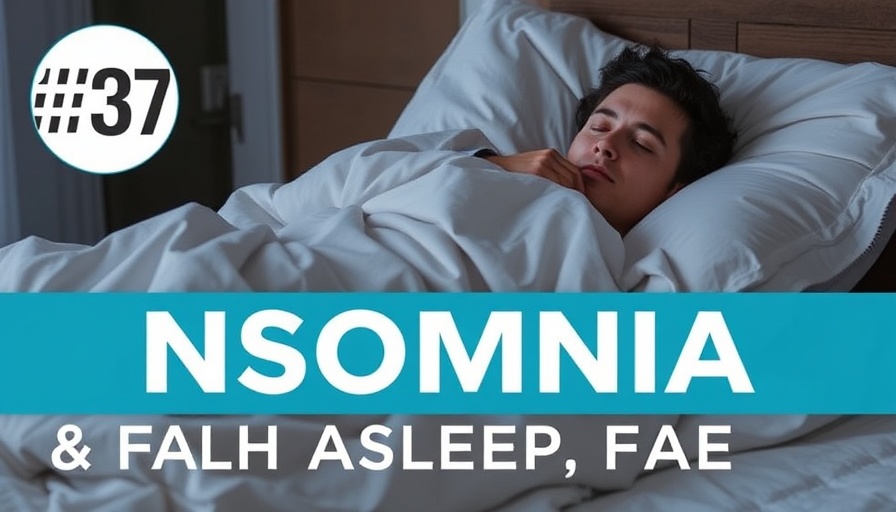
Understanding Insomnia: The Silent Epidemic
Chronic insomnia affects millions, particularly in fast-paced environments like Dallas Fort Worth. Many don't realize this isn't just about trouble sleeping; it's a serious health condition that can accelerate cognitive decline and worsen mental health. Dr. Michael Grandner, a leading expert on sleep, outlines that untreated sleep disorders can disrupt our daily lives far more than we understand.
The Cognitive Impact of Poor Sleep
Did you know that inadequate sleep can impair memory, reduce attention span, and increase risk for anxiety and depression? The relationship between sleep and cognitive function is undeniable, as sleep is crucial for brain health. Recent studies suggest that seniors experiencing sleep apnea risk worsening their cognitive abilities, including heightened risks of Alzheimer's disease. This risk is surprisingly common and frequently overlooked, making awareness and proactive management essential.
Effective Strategies for Better Sleep
Dr. Grandner introduces several practical strategies to help combat insomnia. Cognitive Behavioral Therapy for Insomnia (CBT-I) is highly recommended and focuses on changing thoughts and behaviors that hinder sleep. It's not about sedatives; rather, it retrains your body to prioritize rest. Simple changes, like saving your bed strictly for sleep and having a consistent bedtime routine, can lead to significant improvements.
Timing is Everything: Light, Caffeine, and Supplements
The timing of activities can greatly impact sleep quality. Morning light exposure is crucial, resetting your internal clock to align with the day/night cycle. Be mindful of caffeine; consuming it too late in the day can disrupt your sleep cycle. Additionally, while melatonin supplements are popular, they aren't a one-size-fits-all solution. Dr. Grandner warns that taking too much can be counterproductive, noting a dose of 5 mg could be excessive for many.
Empowering Yourself to Rest Better
Understanding the connection between insomnia and cognitive health is empowering. If you're among those struggling with sleep, remember you have options. Whether it's through adjusting your evening habits, using sleep trackers judiciously to identify patterns, or exploring functional therapies, there are paths to reclaiming restful nights.
In our community, fostering discussions about sleep health can help demystify this often-stigmatized issue. Engaging in local workshops or discussions about health can connect you with professionals and others facing similar challenges.
Take Charge of Your Sleep Today
If you've been battling insomnia or simply wish to improve your sleep quality, consider implementing these strategies gradually. By making informed choices about your lifestyle, you can create a sleep-friendly environment that supports your mental and physical well-being. A good night’s sleep is within reach, and taking that first step is crucial to reaping its benefits.
 Add Row
Add Row  Add
Add 




Write A Comment